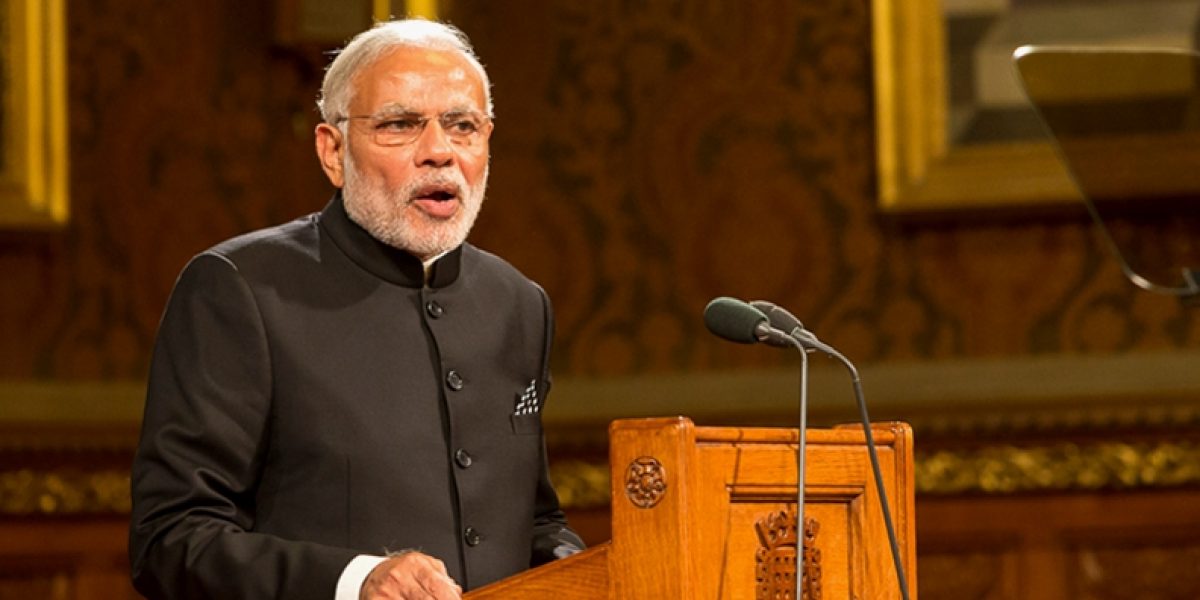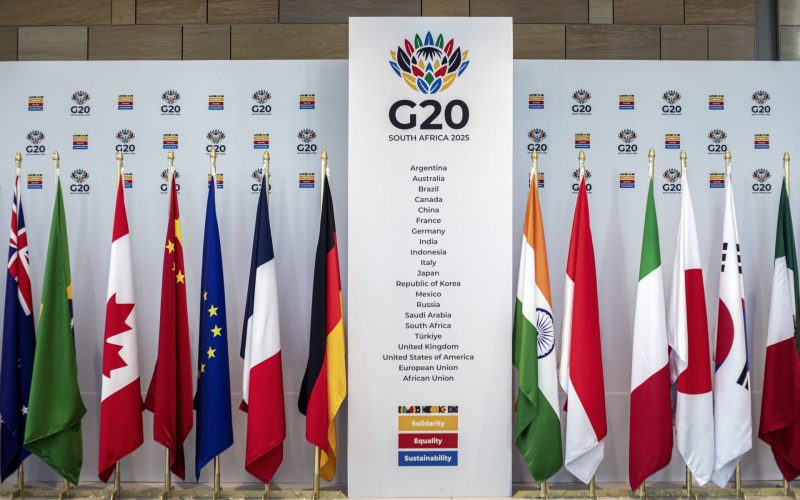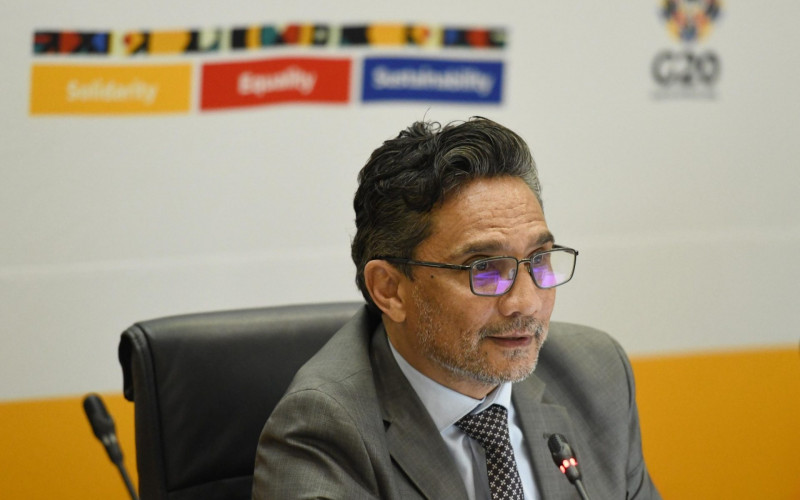There, Indian Prime Minister Narendra Modi announced a range of measures, including extending lines of credit to African nations of up to $10 billion over the next five years, additional grant assistance of $600 million, and a commitment to help train more African peacekeepers in Africa and India.
Now Modi is visiting continental Africa for the first time, starting in Mozambique on 7 July, moving to South Africa on 8 and 9 July, and then on to Tanzania and Kenya.
Last year he visited two Indian Ocean islands, Mauritius and Seychelles, with which India has had long-standing relations, but whose importance is magnified against India’s rejuvenated engagement with the ocean that carries its name.
Since he was elected in May 2014, Modi’s priorities in foreign policy have been geo-economic in nature, directed by both India’s economic imperatives and its position at one end of the huge geostrategic Asian landmass, which it cohabits with China and Russia. Modi’s foreign outreach has focused on raising India’s status globally and pushing for a seat at the high table – bolstered by India’s recent accelerated economic growth.
His foreign minister, Sushma Swaraj, visited South Africa in May 2015 for the 9th South Africa-India Joint Ministerial Commission. More recently, the Indian president, Pranab Mukherjee, undertook a maiden visit to Ghana, Cote d’Ivoire and Namibia in June.
The outcomes of both visits point to key priorities of the Modi administration in elevating India’s place in the world: reform of the United Nations Security Council; and what I call India’s ‘legitimisation’ in the nuclear space.
In the May 2015 communique issued by India and South Africa, both countries’ foreign ministers indicated their support for one another’s candidature for permanent seats on the Security Council. During Mukherjee’s visit last month, he raised the issue of support for a permanent seat for India on the Council.
Both countries are committed to seeing the Council more reflective of current power realities. South Africa’s formal position is the African Union’s Ezulwini Consensus, which seeks two permanent seats for Africa with a veto. That constrains Africa’s ability to work with others on necessary compromises. Some in India see the Consensus as an obstacle to reform; in that view, it should be a starting point for negotiations rather than an inflexible negotiating position. If this round of UN reform negotiations is to gain momentum, Africa will have to review the 11-year-old Consensus. South Africa’s leadership role in this would be important.
Modi’s visit also raises for South Africa the question of the future of IBSA, the India-Brazil-South Africa Dialogue Forum, an initiative which seems all but forgotten.
At last May’s India-South Africa meeting, the ministers confirmed that the IBSA grouping could have a stronger voice in global governance reform, and emphasised their conviction that ‘IBSA provides an ideal Forum to voice the concerns of the Developing South in calling for this [Security Council] urgent reform’.
It’s been five years since the last IBSA summit was held in 2011. On the body’s 10th anniversary in 2013 there was no congratulatory celebration in Delhi, as scheduling difficulties saw President Dilma Rousseff of Brazil cancel her trip. By that time South Africa had also joined the BRICS (Brazil, Russia, India, China, South Africa) grouping, hosting its first BRICS summit that very year. IBSA, at least at the political level, was relegated to a second-tier sub-grouping inside BRICS, with the BRICS agenda and working groups moving into areas where IBSA working groups had operated.
South Africa’s foreign ministry may well contest this, but the public perception is one in which the BRICS grouping and China are the fulcrum around which the country’s foreign relations are conducted. At the political level, relations with India have been muted. The same can be said of relations with Brazil.
However, IBSA is an ideal platform for coordination among three significant southern democratic powers in developing a strategy to build alliances to reform institutions of global governance. The meeting between Prime Minister Modi and South Africa’s President Jacob Zuma should seek to reinvigorate the forum.
The issue that is most likely to be contentious during Modi’s visit to South Africa is India’s goal of joining the Nuclear Suppliers Group, a grouping of 48 nuclear supplier countries – all signatories to the Nuclear Non-Proliferation Treaty (NPT) – that seeks to prevent nuclear proliferation by controlling the export of materials, equipment and technology that can be used to manufacture nuclear weapons.
In May last year, South Africa’s foreign minister, Maite Nkoana-Mashabane, gave Swaraj ‘assurances to consider favourably India’s membership of the Nuclear Suppliers’ Group’. South Africa is a member of the group. India has not signed the NPT, but was granted a waiver by the NSG allowing it to trade in nuclear materials after a deal with the United States in 2008. This waiver is unilateral and may be withdrawn; hence India’s determined effort to become a member of the grouping.
The question that India’s application raises for the NSG is whether it should consider criteria for membership by states with nuclear weapons that are not party to the NPT. This point was made at a meeting of the group in Seoul in June.
India’s application for membership was supported by most NSG members in Seoul, but China argued that India was not a signatory of the NPT. Although this position was not articulated at the plenary, China’s state-owned Global Times argued that if India were given an exemption on the NPT, the same should apply to Pakistan.
Both South Africa and Brazil raised objections based on avoiding the erosion of the NSG’s eligibility criteria by making an exception for India. The current criteria for admission emphasise the importance of states being signatories to the NPT or another regional non-proliferation arrangement.
Unfortunately, membership of such bodies is less about compliance than it is about realpolitik. In a recent column, WPS Sidhu, a research associate of the South African Institute of International Affairs and a senior fellow of the New York-based Center on International Cooperation, argues that it was hypocritical for China to block India’s entry, given how states within the NSG themselves do not comply with the provisions of the group. However, Brazil and South Africa’s position on the importance of defining criteria for membership to ensure the strengthening rather than the erosion of non-proliferation should not be dismissed by India.
There is likely to be an interim NSG meeting in 2016 before the next annual meeting in Switzerland in 2017. No doubt Modi will try to convince South Africa to support India’s bid to join, arguing that while it is not an NPT signatory it has been compliant with the treaty’s provisions and those of the NSG.
During President Mukherjee’s trip to Africa, the nuclear issue was on the agenda in both Ghana and Namibia. In Ghana President John Mahama asked for India’s cooperation with his country’s civilian nuclear energy programme. In Namibia discussions focused on a 2009 agreement with India for the long-term supply of uranium, but supplying uranium to India would be a violation of the Pelindaba Treaty, which bars uranium exports to non-NPT signatories. Namibian President Hage Geingob said that the country would look at ‘legal ways of selling uranium to India for peaceful use of nuclear energy technology’.
While India and Africa are developing ever closer links in the economic terrain, and share interests in reforming the system of global governance, Indian ‘exceptionalism’ in the nuclear space will continue to present obstacles in its African diplomacy.







